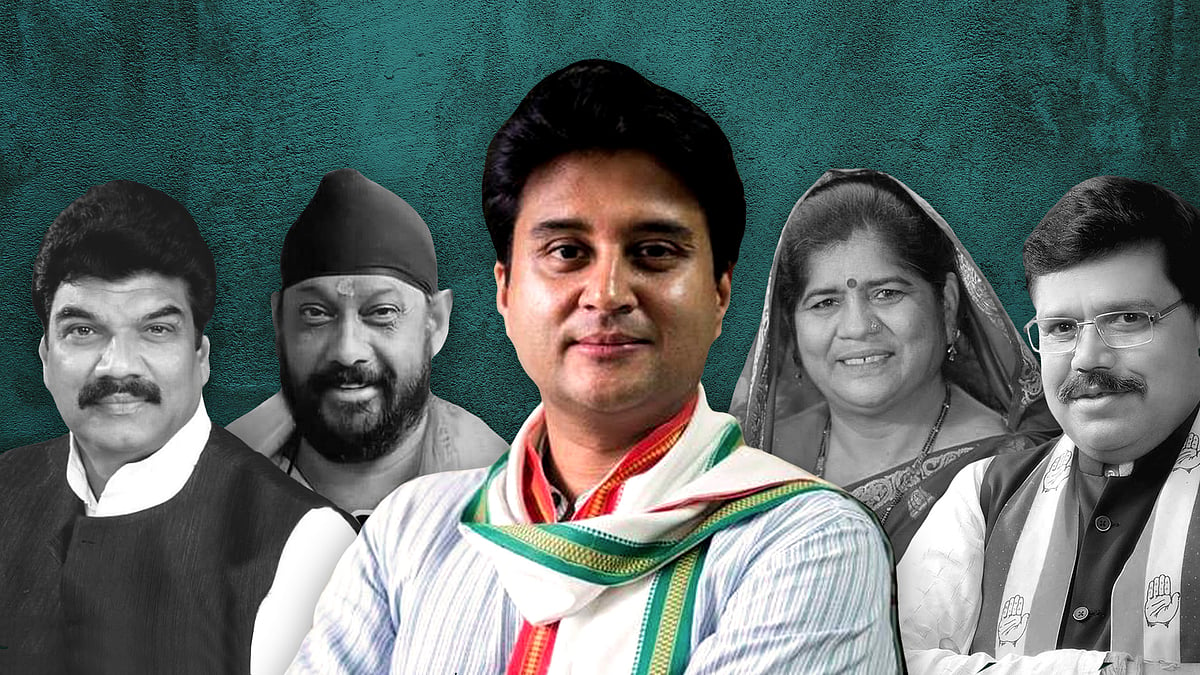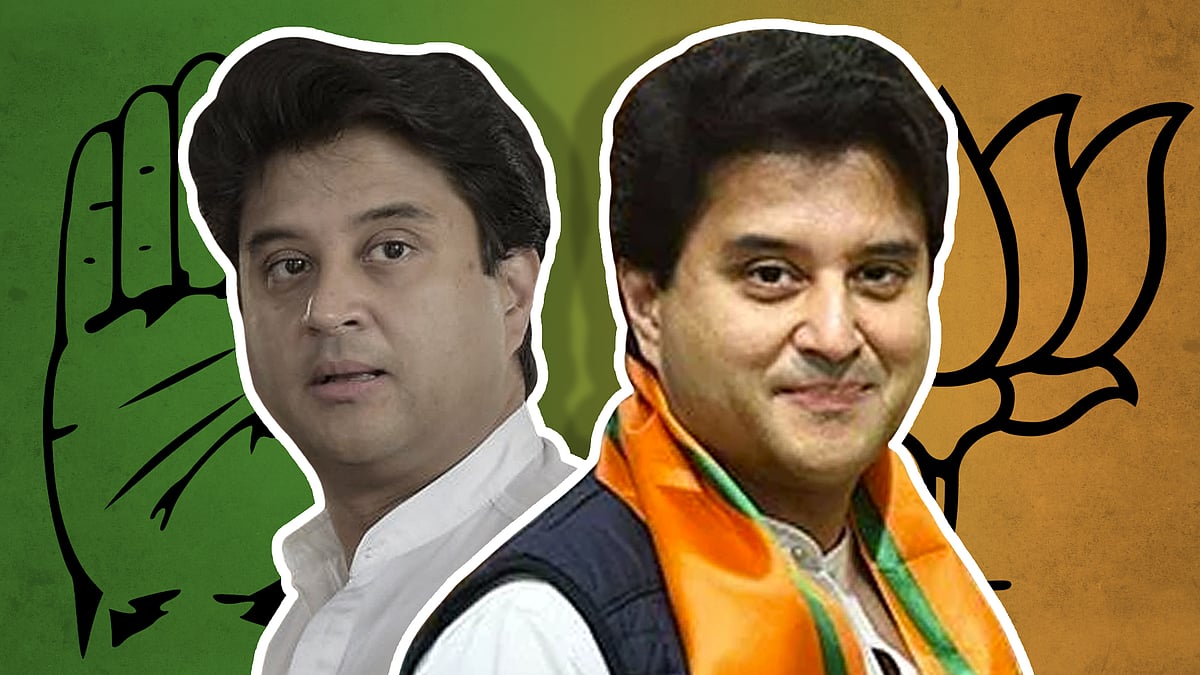Ashok Gehlot might save his government, but the Congress will do its best to placate Sachin Pilot
After Jyotiraditya Scindia’s defection to the BJP, the party can ill-afford the loss of yet another young leader.
“It was an act of solecism.”
That’s how Congress leader Mani Shankar Aiyar tried to explain the use of the Hindi word “nikamma”, or idle, for then prime minister HD Deve Gowda — a word used against Gowda by Congress president Sitaram Kesri. On April 21, 1997, in his reply to the motion of confidence debate in the Lok Sabha, Gowda had expressed anguish over the use of the word.
As the Congress had already withdrawn support from the government, the prime minister’s resignation was a foregone conclusion. He made way for fellow Janata Dal partyman IK Gujral to take over as the head of the United Front government.
More than two decades later, senior Congress leader and Rajasthan chief minister, Ashok Gehlot, has added nakaara (useless) to the same nikamma jibe, this time directed towards party rebel Sachin Pilot. Until recently, the now estranged Pilot was president of the Rajasthan state unit of the Congress as well as the deputy chief minister of the state.
Unlike Aiyar, Gehlot cannot offer an ignorance of Hindi semantics as an explanation. However, unlike during the late 1990s, Gehlot won’t feel the same pressure to feel regretful of his verbal excess.
This isn’t because Gehlot’s target is not holding the high office of prime minister. It’s because in this altered world of political messaging, shrill barbs, and no-holds-barred attacks on opponents, Gehlot’s outburst is a minor blip, if not innocuous. Even so, there were brief murmurs from a recently sacked spokesperson of the party.
Ironically, Gehlot has come down heavily on Pilot for using “rough language” for the last seven years. An example he cited was how Pilot brazenly expressed his chief ministerial ambitions by saying that he had come to Rajasthan to become chief minister and not sell baigan (brinjal). Gehlot attributed his patience with Pilot to Rajasthani culture and the party leadership’s ill-informed faith — both of which he accused Pilot of betraying.
More significantly, Gehlot sent two important signals with a clear, even vicious, line of attack. First, that he is in no mood for a reconciliatory tone now. Unlike his earlier statements, he did not resort to gestures like a hug awaiting his rival above differences. Second, his new-found belligerence might be rooted in anxiety over the possibility of the Congress’s 10 Janpath leadership planning to placate Pilot, especially in case the latter’s camp escapes the anti-defection law disqualification.
The Rajasthan High Court still hasn’t decided on the legal challenges to the Rajasthan Legislative Assembly Speaker’s expected move of disqualifying legislators from the Pilot camp. Instead, on July 21, the court reserved its verdict for July 24 and restrained the Speaker, CP Joshi, from taking any action against Pilot and 18 other party MLAs. As valid grounds to reject the application of anti-defection provisions, the lawyers for the Pilot camp, Mukul Rohtagi and Harish Salve, cited the short notice period, the freedom of inner party dissent, and the freedom to defy the party whip outside the Assembly.
Speaker CP Joshi’s contention, as presented by senior lawyer Abhishek Manu Singhvi, was that the petition is premature, since Joshi had simply sent a notice to the MLAs. Singhvi argued that until Joshi communicates his decision, the MLAs cannot question the decision and hence, as of now, the Speaker and the Assembly are beyond the court’s purview.
In the short run, these legal technicalities might be the precursor to the eventual show of strength in the Assembly. Although Gehlot might have an edge in saving his government in the state, the concerns of the Congress’s central leadership are far beyond the immediate.
The loss of another young leader with a considerable support base is a political cost that the party can ill-afford. Coming close on the heels of losing Jyotiraditya Scindia as well as the state government in Madhya Pradesh, the Congress is likely to try harder to rehabilitate Pilot into its fold. That will need a last-ditch effort to strike a balance between the gerontocracy of the old loyalists and the impatience of the young hopefuls.
Somehow befuddled by the confusing signals from the top leadership — especially in the light of former president Rahul Gandhi’s push for a young profile for the party — the young regional satraps are showing damaging signs of restlessness. Like Scindia, Pilot seems to have realised that patience ceases to be a political virtue in a party when it becomes shorthand for surrendering ambition. A political careerist would seek a way out of such a mid-career crisis. In response, the party is likely to see if it can offer him some prospects.
On December 16, 2017, a visibly embarrassed Janardan Dwivedi, then the general secretary of the Congress, took the mic at the lawns of 24 Akbar Road, the Congress headquarters in New Delhi. He asked Congress workers to stop bursting firecrackers as Sonia Gandhi, the longest serving president of the 132-year-old party, was unwilling to continue her speech amidst the noise.
His appeal failed. Sonia paused her speech again, saying, “I can’t speak.” She was finally persuaded by new president Rahul Gandhi to ignore the din caused by enthusiastic workers welcoming his elevation to the party’s top post.
In a way, Sonia Gandhi’s last formal engagement as the head of India’s oldest political party might have reminded her of the sentimental, yet functioning, chaos that often defines public space and its governance in India.
Almost three years later, Sonia Gandhi, back as the ad hoc president, will want the resolution of far more serious chaos in Jaipur, without looking away from the reminders of a generational shift. In 1970, political scientist Rajni Kothari identified the Congress as a “system” for its capacity to accommodate various interests and identities. Fifty years later, it can at least try to have a more efficient scheme for the coexistence of the old guard and the young turks.
***
Independent media is on the frontlines of the coronavirus crisis in India, as elsewhere, telling stories that need to be told and asking questions that need answers. Support independent journalists by paying to keep news free. Subscribe to Newslaundry today.
 MP's unelected ministers: Meet Jyotiraditya Scindia's loyalists propping up Shivraj Singh Chouhan’s regime
MP's unelected ministers: Meet Jyotiraditya Scindia's loyalists propping up Shivraj Singh Chouhan’s regime
 Leadership, not ideology, drove Jyotiraditya Scindia from the Congress to the BJP
Leadership, not ideology, drove Jyotiraditya Scindia from the Congress to the BJP
